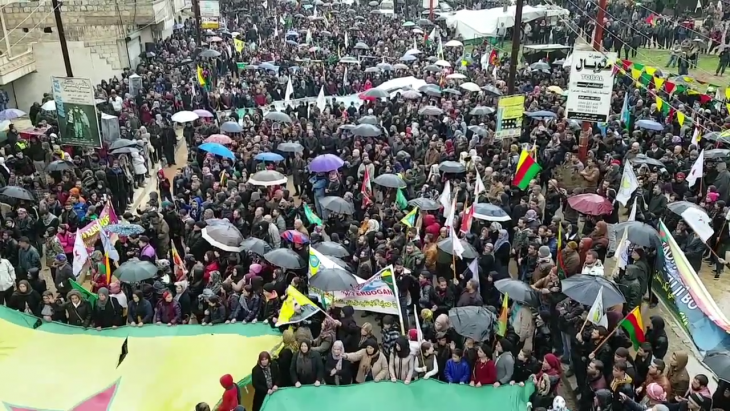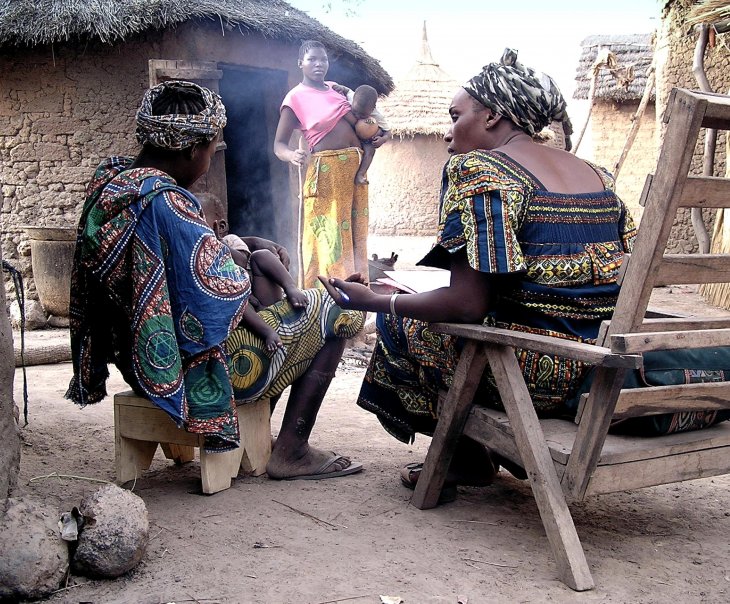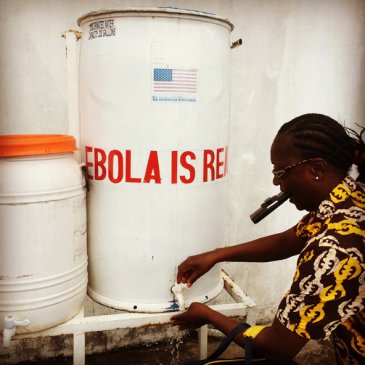Tuesday 20 February The President of Egypt, Abdel Fattah al-Sisi, said he wants to enhance security and stability in South Sudan, after meeting with a GoSS representative. Wednesday 21 February The Kenyan foreign ministry advise Kenyans against travelling to several areas in South Sudan. Friday 23 February A new UN report identified more than 40… Read more »
Aid Agencies Can’t Police Themselves. It’s Time for a Change
The spreading “Oxfam scandal” will affect the entire humanitarian sector painfully. It brings into plain sight what observers of the internal workings of NGOs have known for a long time: NGOs have an organisational reflex of banning outsiders from their kitchen, and keeping their potentially dangerous secrets hidden.
 Abuses of power are common in any situation where vulnerable people depend on powerful service providers. But the key question that still haunts this sector is how organisations should deal with the rotten apples – the abusers of power. Even though Oxfam has taken earlier abuses and misconduct seriously, the organisation has acted alone and resorted to internal measures in dealing with the problem.Read More
Abuses of power are common in any situation where vulnerable people depend on powerful service providers. But the key question that still haunts this sector is how organisations should deal with the rotten apples – the abusers of power. Even though Oxfam has taken earlier abuses and misconduct seriously, the organisation has acted alone and resorted to internal measures in dealing with the problem.Read More
Turkey’s Risky Adventure in Afrin
Turkey’s military incursion into Kurdish-controlled northern Syria risks straining diplomatic ties and exposing Turkey to increased terror threats.
The Turkish offensive on Afrin that began on January 20 had long been anticipated. But while the ruling Justice and Development Party (AKP) may hope this campaign can drum up anti-Kurdish nationalism ahead of the 2019 elections, it could also generate severe diplomatic backlash and exacerbate Turkey’s security issues.

Demonstration in Afrin to support the YPG and the YPJ against the Turkish military operation, 19 January 2018. Wikimedia Commons
In terms of foreign policy, Turkey’s incursion into northern Syria strains its already precarious relations with the United States and places further stress on the Turkey – NATO relationship. One of the triggers for Turkey’s Afrin operation was the U.S. announcement on January 14 that it would create a Kurdish force of 30,000 to secure Syria’s border with Turkey and Iraq in areas held by the Kurds.Read More
Valuing Critical Feminist Insights on Militarism and Security
By Annick Wibben Many Security Studies scholars still query the usefulness of feminist approaches to security. Or rather, they quite simply ignore the significant contributions made by Feminist Security Studies scholars [see e.g. Stern & Wibben 2015]. Sometimes this means that they miss, or are puzzled by, observations such as the finding that women might… Read more »
This Week in South Sudan – Week 6 & 7
Tuesday 6 February Hundreds of pro-government supporters protested against the newly announced US arms embargo outside the U.S. embassy and U.N. headquarters in Juba. Two journalists were beaten during the protest. Wednesday 7 February According to South Sudan’s Human Rights Commission’s latest report, national security officials continue to sexually assault and arbitrarily arrest civilians across… Read more »
New Mapping of Children Affected by Armed Conflict
This weekend, decision-makers from all over the world will come together to discuss current and future security challenges at the Munich Security Conference (MSC), which has become the major global forum for discussion of security policy. At the conference, Save the Children will launch its new report The War on Children: Time to End Grave Violations against Children in Conflict. The report is based on a new mapping of children in armed conflict conducted at the Peace Research Institute Oslo (PRIO).
Our findings are quite alarming: we find that more than half the world’s children are living in conflict-ridden countries, and furthermore, one in six children live in close proximity to where the actual violence occurs.
Women’s Inclusion in the Peace Process in Mali
Women have been marginalized throughout the Malian peace process and their inclusion has received little priority, contrary to UN Security Council resolutions on the involvement of women in peace processes.
Although legislation and policy frameworks promoting their inclusion are in place, implementation is lagging behind.
Despite difficulties in the Malian peace process, there are opportunities to improve women’s inclusion, which should be seized immediately, before the peace process moves onto the next stage and the issue of inclusion becomes even more complex.

Photo: Nicholas Griffin, USAID / Pixnio
Women have historically been excluded from formal processes dealing with war and peace, yet they often represent the majority of those affected by war. In Mali, the security situation prevents women from moving around safely, accessing markets, and organizing themselves across communities. Women are at risk of experiencing violence when leaving their homes or communities.
Postcolonial states and ‘excessive militarism’: The Indian story
By Swati Parashar Do all states embrace militarism as a natural condition of their existence? Can militarism in different states be differentiated in content and form? How do states engender security through militarism? How is civilian consent built around militarism, especially in postcolonial states? In an era when populist regimes seem to dominate the political… Read more »
From Principle to Practice: Humanitarian Innovation and Experimentation
Without methods to gauge success and failure, and without appropriate ethical frameworks, humanitarian tech may do more harm than good.

A passenger arriving at Monrovia’s Roberts International Airport takes advantage of effective, if not innovative, humanitarian intervention. Photo: Sean Martin McDonald
Humanitarian organizations have an almost impossible task: They must balance the imperative to save lives with the commitment to do no harm. They perform this balancing act amidst chaos, with incredibly high stakes and far fewer resources than they need. It’s no wonder that new technologies that promise to do more with less are so appealing.
By now, we know that technology can introduce bias, insecurity, and failure into systems. We know it is not an unalloyed good. What we often don’t know is how to measure the potential for those harms in the especially fragile contexts where humanitarians work. Without the tools or frameworks to evaluate the credibility of new technologies, it’s hard for humanitarians to know whether they’re having the intended impact and to assess the potential for harm. Introducing untested technologies into unstable environments raises an essential question:
When is humanitarian innovation actually human subjects experimentation?
Confessions of a Defector from Sociology (1)
I am very grateful to the Norwegian Sociological Association for awarding me its Lifetime Achievement Award for 2018 (Norwegian original of the citation here, English translation here).

In fact, I find this exceptionally generous. Although I was once a board member of the association, I have only dealt with it once in the past 25 years, and that was when I cancelled my membership. Fortunately, my wife decided that our home could not do without Acta Sociologica, so she joined at the same time that I left. At about the same time, I redefined myself as a political scientist and joined the Norwegian Association of Political Science. This raises three questions: Why did I become a sociologist? Why did I leave? And: Do I regret it?Read More